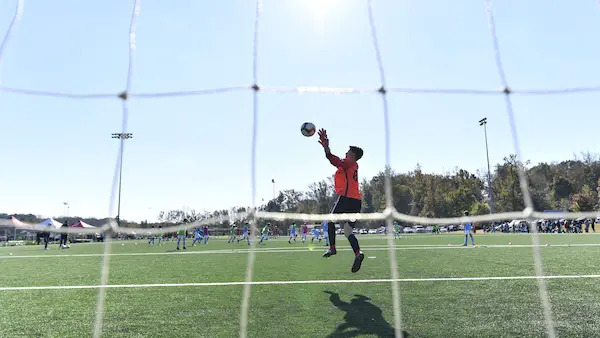Youth soccer burnout is a major problem. Many kids quit because they can’t overturn the burn. Check out some tips on how to avoid burnout in young athletes.
Being busy has become a badge of honor for many parents. Much of their busy-ness involves driving their children to and from various after-school activities, lessons, and sports games and practices.
Did you know that, on average, school-age kids spend over 5 hours a week in organized activities? That might not seem so bad, but there are many kids spending closer to 15 to 20 hours a week in activities outside of school hours, especially those involved in travel sports.
Keep reading for 3 suggestions on how to avoid burnout in your young athlete.
How To Avoid Burnout: 3 Strategies to Keep Your Child Excited About Playing Soccer
Despite the numerous benefits of competing in youth soccer, we are increasingly seeing kids getting burnt out.
Especially in the time-consuming and often pressure-filled environment of high level travel soccer, kids are finding more of their free time monopolized by various soccer activities on a year-round basis.
Without breaks or the opportunity to play different sports or engage in other activities, kids who become burnt out are physically and mentally exhausted, see their performance decline, and may even decide they don’t want to play the sport anymore.
Preventing burn out is possible, though.
1. Don’t Push Specialization Too Early
Many parents push their kids to specialize in one sport much too early. Experts say that kids should play what they love while they are young. If that’s a new sport each season, that’s fine. Specialization in a sport shouldn’t occur until their later teens.
Kids who play multiple sports are more adaptable, find it easier to learn, and are less likely to end up with injuries due to overuse of certain body parts or muscles.
2. Don’t Live Vicariously Through Your Children
Many parents find themselves living vicariously through their children and projecting what they want on their kids. Avoid coaching from the sidelines (unless you are the actual coach, of course). Leave the coaching to the coaches.
Encourage communication with your child and make them comfortable enough to share with you when they are having issues or need a break. However, parents should avoid talking about the game or practice itself during the car ride home. Remember that sports are supposed to be fun. Parents should encourage, provide a ride to and from, and limit their input about the games and practices to six simple words – I Love To Watch You Play.
3. Give Your Kids The Chance for Breaks
Many parents might be tempted to push their kids into sports year round, even if they’re already doing the multi-sport thing. Spending every weekend on a field or gym or rink can deprive your child of time to form friendships and build memories that will last a lifetime.
Giving them a chance to just be a kid is important.
When kids know they can take a break with the support of their parents, they are less likely to burn out and more likely to come back the next season rested and refreshed. It’s also a great way to make sure they actually want to play the sport at all because if they complain about starting up again after a break, that’s a great sign they don’t enjoy the experience.
The Bottom Line
Travel soccer can be a valuable and memorable part of a child’s life. But it shouldn’t be treated as their only meaning in life. By actively working to prevent burnout, you can help keep the love for the sport strong, which will only benefit your young man or woman mentally and physically overall.
Use these suggestions for how to avoid burnout and help your kids have the best experience they can.








